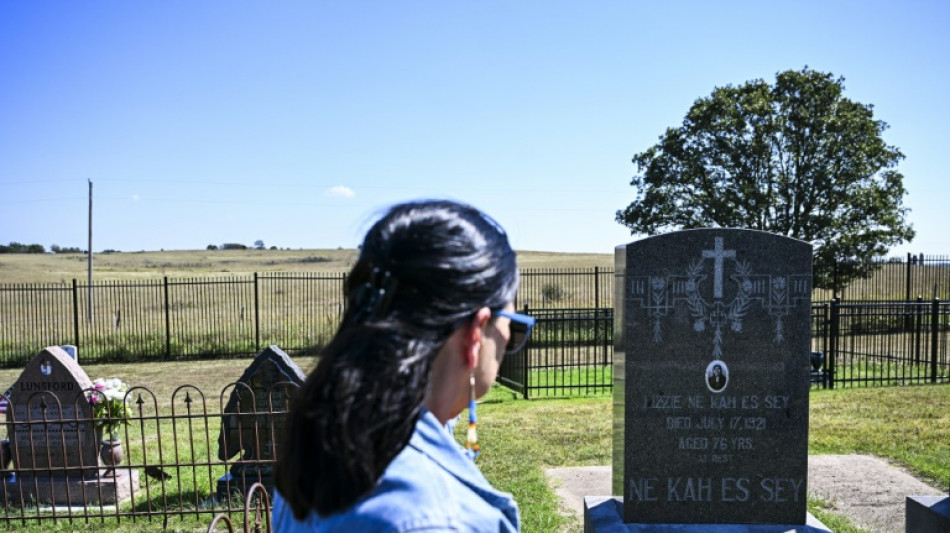
-
 Win or bust in Europa League for Amorim's Man Utd
Win or bust in Europa League for Amorim's Man Utd
-
Trump celebrates 100 days in office with campaign-style rally
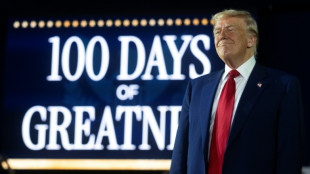
-
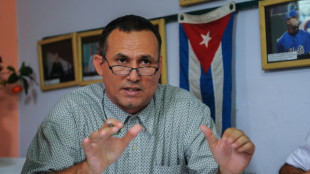 Top Cuban dissidents detained after court revokes parole
Top Cuban dissidents detained after court revokes parole
-
Arteta urges Arsenal to deliver 'special' fightback against PSG

-
 Trump fires Kamala Harris's husband from Holocaust board
Trump fires Kamala Harris's husband from Holocaust board
-
Pakistan says India planning strike as tensions soar over Kashmir attack
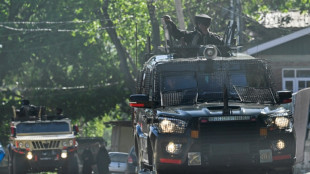
-
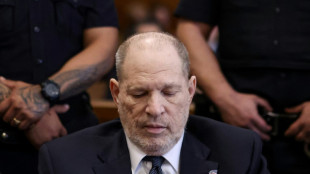 Weinstein sex attack accuser tells court he 'humiliated' her
Weinstein sex attack accuser tells court he 'humiliated' her
-
France accuses Russian military intelligence over cyberattacks
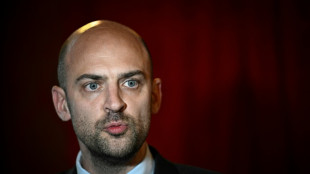
-
 Global stocks mostly rise as Trump grants auto tariff relief
Global stocks mostly rise as Trump grants auto tariff relief
-
Grand Vietnam parade 50 years after the fall of Saigon

-
 Trump fires ex first gentleman Emhoff from Holocaust board
Trump fires ex first gentleman Emhoff from Holocaust board
-
PSG 'not getting carried away' despite holding edge against Arsenal

-
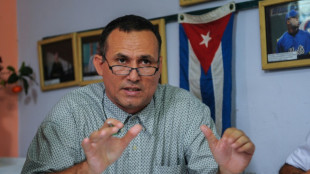 Cuban dissidents detained after court revokes parole
Cuban dissidents detained after court revokes parole
-
Sweden stunned by new deadly gun attack

-
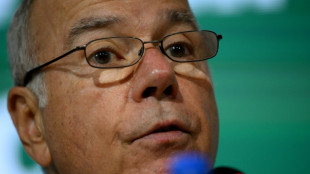 BRICS blast 'resurgence of protectionism' in Trump era
BRICS blast 'resurgence of protectionism' in Trump era
-
Trump tempers auto tariffs, winning cautious praise from industry

-
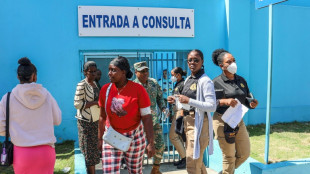 'Cruel measure': Dominican crackdown on Haitian hospitals
'Cruel measure': Dominican crackdown on Haitian hospitals
-
'It's only half-time': Defiant Raya says Arsenal can overturn PSG deficit

-
 Dembele sinks Arsenal as PSG seize edge in Champions League semi-final
Dembele sinks Arsenal as PSG seize edge in Champions League semi-final
-
Les Kiss to take over Wallabies coach role from mid-2026

-
 Real Madrid's Rudiger, Mendy and Alaba out injured until end of season
Real Madrid's Rudiger, Mendy and Alaba out injured until end of season
-
US threatens to quit Russia-Ukraine effort unless 'concrete proposals'
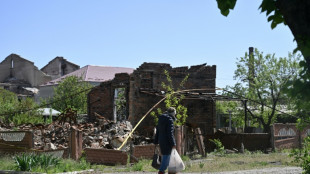
-
 Meta releases standalone AI app, competing with ChatGPT
Meta releases standalone AI app, competing with ChatGPT
-
Zverev crashes as Swiatek scrapes into Madrid Open quarter-finals

-
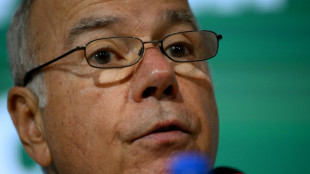 BRICS members blast rise of 'trade protectionism'
BRICS members blast rise of 'trade protectionism'
-
Trump praises Bezos as Amazon denies plan to display tariff cost
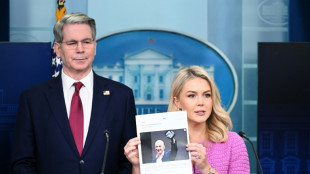
-
 France to tax small parcels from China amid tariff fallout fears
France to tax small parcels from China amid tariff fallout fears
-
Hong Kong releases former opposition lawmakers jailed for subversion

-
 Trump celebrates tumultuous 100 days in office
Trump celebrates tumultuous 100 days in office
-
Sweden gun attack leaves three dead

-
 Real Madrid's Rudiger banned for six matches after Copa final red
Real Madrid's Rudiger banned for six matches after Copa final red
-
Firmino, Toney fire Al Ahli into AFC Champions League final

-
 Maximum respect for Barca but no fear: Inter's Inzaghi
Maximum respect for Barca but no fear: Inter's Inzaghi
-
Trump signals relief on auto tariffs as industry awaits details

-
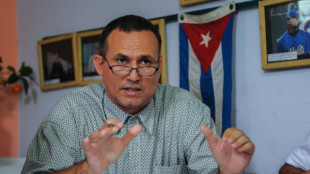 Cuban court revokes parole of two prominent dissidents
Cuban court revokes parole of two prominent dissidents
-
Narine leads from the front as Kolkata trump Delhi in IPL

-
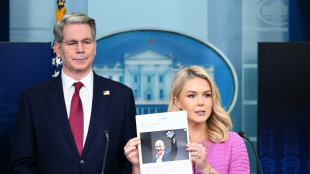 Amazon says never planned to show tariff costs, after White House backlash
Amazon says never planned to show tariff costs, after White House backlash
-
Djokovic to miss Italian Open

-
 Trossard starts for Arsenal in Champions League semi against PSG
Trossard starts for Arsenal in Champions League semi against PSG
-
Sweden shooting kills three: police

-
 Real Madrid's Rudiger, Mendy out injured until end of season
Real Madrid's Rudiger, Mendy out injured until end of season
-
Dubois' trainer accuses Usyk of 'conning boxing world'

-
 Femke Bol targets fast return after draining 2024
Femke Bol targets fast return after draining 2024
-
Asterix, Obelix and Netflix: US streamer embraces Gallic heroes

-
 Watson wins Tour de Romandie prologue, Evenepoel eighth
Watson wins Tour de Romandie prologue, Evenepoel eighth
-
Amazon says never decided to show tariff costs, after White House backlash
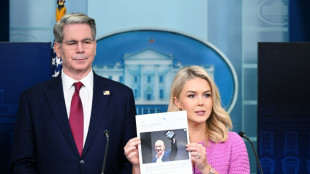
-
 India gives army 'operational freedom' to respond to Kashmir attack
India gives army 'operational freedom' to respond to Kashmir attack
-
Stocks advance as investors weigh earnings, car tariff hopes

-
 Canadian firm makes first bid for international seabed mining license
Canadian firm makes first bid for international seabed mining license
-
Kardashian robbery suspect says heist was one 'too many'
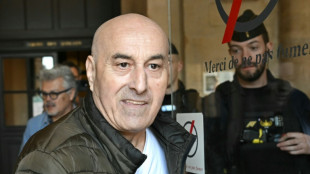

'Flower Moon' descendants feel pain of murdered Osage ancestors
As eagles swoop overhead and a cool autumnal wind blows through the cemetery in Gray Horse, on the ancient lands of the Osage people in northern Oklahoma, Margie Burkhart points to the tombs of ancestors murdered a century ago.
The tragedy that struck her family is at the heart of the new Martin Scorsese film "Killers of the Flower Moon," taken from the best-selling book of the same name.
In the 1920s, Mollie Burkhart, Margie's grandmother -- played in the film by Native American actress Lily Gladstone -- saw her mother, her sisters and her brother-in-law murdered.
The killings came one after another -- in a poisoning, in a bombing, by a bullet to the head.
"I think they systematically chose which ones to die," 61-year-old Margie Burkhart told AFP.
Intensifying the ordeal even further: The killings were orchestrated by Mollie's own husband, Ernest Burkhart, played by Leonardo DiCaprio, and his uncle William Hale (Robert De Niro) -- two white settlers intent on getting their hands on the Osage family's rights to their oil-rich property.
- 'Just for greed' -
Today, the yellowing fields around Gray Horse are dotted with the occasional oil rig -- but this is nothing compared to the huge boom at the turn of the 20th century, when the huge machinery covered the prairies for miles around.
That's when one of the most prolific oil fields in the US at the time was discovered on the Osage reservation.
The Osage people held the exclusive rights to exploiting this underground wealth -- rights that legally could only be transferred to or inherited by an Osage member's legal heir.
"The Osages were considered the wealthiest people in the world," said Kathryn Red Corn, who is Osage, speaking in a house built by her great-grandfather in Pawhuska, the seat of the Osage nation's current government.
That wealth drew the attention of some nefarious white settlers.
People came to the area and wooed and married members of the Osage nation for their money, said the 82-year-old Red Corn.
"They would have them murdered, and then they would inherit what they had," she said. The walls of her living room are decorated with Osage art and black-and-white photos of her ancestors.
In all, at least 60 members of the Osage nation -- many more by some estimates -- were believed murdered during a period that became known as the Reign of Terror.
- Suspicious poisoning -
Red Corn's grandfather, Raymond Red Corn Senior, who was also Osage, suspected his second wife, a white woman, of poisoning him.
He died suddenly in his 40s and in otherwise good health, Kathryn Red Corn said. His death, in the early 1920s, was never investigated.
For Margie Burkhart, the sense of anger and suffering around these murders are still palpable -- feelings reawakened this summer when she attended a private screening of Scorsese's film.
"They took away my (great-)aunties, and I could have had a big family," she said, almost choking on the words. "I could have had a lot of cousins, nieces, nephews -- and I grew up without them."
She added: "William Hale didn't have to do that," she said of one of the masterminds of the killings. "He was one of the richest people in Osage County."
"It was just for greed. He wanted more money."
- 'No justice' -
"Simply because they were Indian, their life had lesser value," lamented 62-year-old Jim Gray, a former principal chief of the Osage nation.
He said his great-grandfather Henry Roan was murdered in 1923, also in a plot organized by Hale, who had taken out a life insurance policy in Roan's name.
Both Ernest Burkhart and Hale were eventually convicted of murder -- despite their efforts at a cover-up -- and received life sentences.
Gray said only a small percentage of the Osage murders in this period were investigated by federal authorities.
"These stories have not been told," he said in the small town of Skiatook, north of Tulsa. "There's been no justice for those families."
Gray was deeply concerned when he heard that Hollywood had taken an interest in this painful chapter of Osage history.
"Were we just going to be second-tier characters in our own story?" he wondered.
Instead, Gray said, "Imagine our surprise when Scorsese reached out and met with us, and listened to us, and effectively rewrote big portions of the script."
Having originally focused on the federal investigation, writers reworked the script to center on the story of Mollie and Ernest Burkhart.
"You're going to watch this film and the Osage influence, you're going to be able to feel it," Gray said.
He hopes the film's October 20 US release will spark debate about "the people that were stepped on" to make the country "what it is today."
Gray added: "People may not want to talk about it. It's not in our history books."
But, he went on, "We need to know our past, especially the mistakes... so that we won't repeat them."
Margie Burkhart also hopes the film keeps memories of the Osage's searing trauma from dimming into oblivion.
"In two, three years from now, when the movie fades away, I hope people are still talking about it," she said.
P.Silva--AMWN



